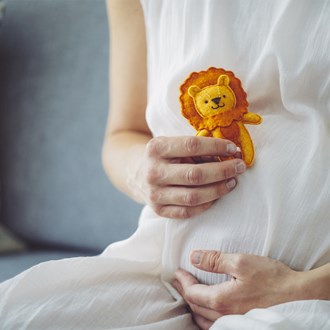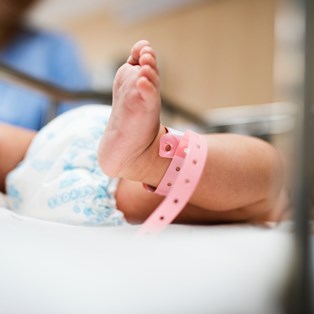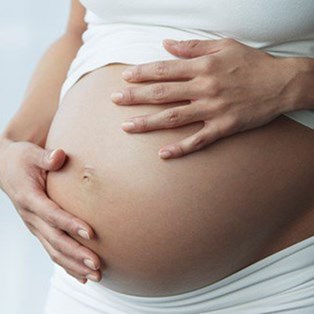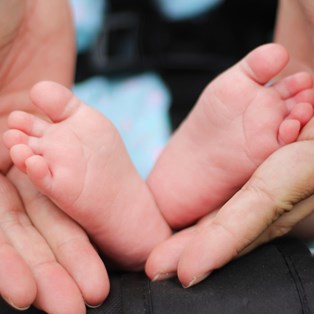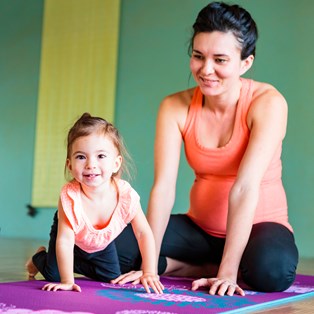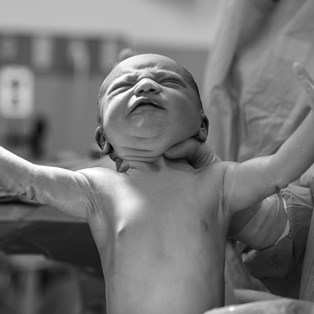Precautions to take during the first three months of pregnancy
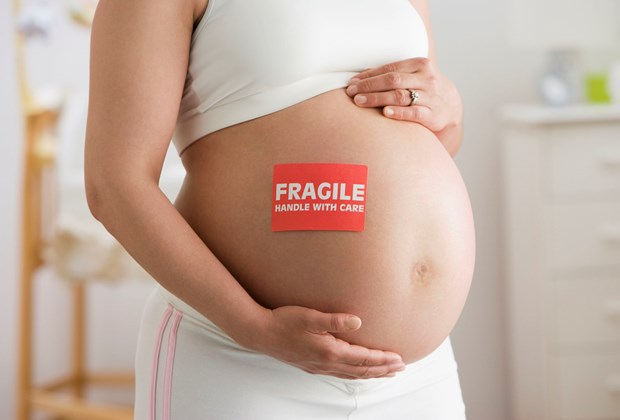
Mind the bump!
By Alex Harmon
January 31 2019
When you discover that you’re pregnant you want to treat your body like a temple, after all it is where your precious cargo calls home. Your health during the first trimester is the most critical because the foetus is developing rapidly and at its most vulnerable.
It’s also at this time that your body is undergoing massive hormonal changes that are likely to result in fatigue, nausea, bloating, feeling emotional – or a combination of all these things!
There are many precautions to take during the first three months of pregnancy to avoid miscarriage, premature labour and birth defects. To ensure your baby grows and develops properly, here is a list of 1st trimester of pregnancy do's and don'ts – although many are precautions to take throughout your entire pregnancy.
1. Take folic acid
As soon as you find out you’re pregnant it’s important to start taking a daily folic acid supplement. Folic acid is an essential nutrient that protects your baby against brain and spinal cord problems such as spina bifida. Some women are advised to take a pregnancy multivitamin, but as long as you’re eating a balanced diet with light exercise and plenty of sleep you should be getting all the nutrients you need.
2. Quit smoking
A woman who smokes during pregnancy is at increased risk of miscarriage, delivering a low-birth weight baby and premature labour. Babies whose mothers smoke during pregnancy are at a higher risk of SIDS and low birth weight babies are burdened with long-term health problems. There’s never been a better time to quit.
3. Ban or limit alcohol
The latest guidelines say there's no safe time to drink alcohol during pregnancy. However if you decide to drink while pregnant, wait until the second trimester and limit yourself to one or two units of alcohol no more than twice a week. Drinking within the first 12 weeks has been associated with higher risk of miscarriage.
4. Watch your caffeine intake
You may be feeling exhausted but when you’re expecting you should really limit yourself to 200mg of caffeine a day, which is around one cup of coffee. More than this on a regular basis could increase your risk of miscarriage.
5. Foods to eat and avoid
It seems the list of foods to avoid in first months of pregnancy gets longer every year. But what you should be aiming for throughout your whole pregnancy is a healthy, fresh, balanced diet rich in vitamins. Things to avoid in early pregnancy are those that may contain bacteria, parasites or toxins that could harm your unborn baby. This includes unpasteurised dairy products, soft cheeses, raw or undercooked meat, raw shellfish, raw or partially cooked eggs and liver products. Pre-packaged salads, sushi and cold meats should be steered clear of because they have a higher risk of listeria contamination which can harm your baby.
6. Avoid spas and saunas
Having a high body temperature is not good for foetal development. Throughout your whole pregnancy you should avoid saunas, spas and hot baths or any environment that can heat your body temperature to above 39 degrees Celsius.
7. Be careful with medication and drugs
Painkillers like aspirin, paracetamol and ibuprofen and should be taken with caution as their overuse can have harmful side effects. Paracetamol can be taken for pain relief but try for the lowest dosage. Talk to your GP or midwife about any prescription medicines you are taking.
Mothers who take recreational drugs are putting themselves and their baby at risk of a range of complications. Miscarriage, placental abruption, stillbirth, prematurity, small birth weight, behaviour and learning problems, and addiction are common problems.
8. Avoid chemicals
Harmful chemicals found in household cleaning products, paint, pesticides and plastics can pose a risk to your unborn child. Use with caution. While you should be drinking lots of water, always use a glass, metal or stainless steel bottle, or a BPA-free plastic bottle. BPA found in plastic is highly toxic and can increase the risk of miscarriage.
9. Get the flu vaccination
A flu shot is the best way to protect you and your baby. Being vaccinated against the common flu virus will not put your baby at risk and protects your baby within the first six months of life when they are too young to receive the flu vaccine.
10. Take care when travelling
Pregnant women will often ask if it’s safe to travel during the first trimester of pregnancy and the answer is yes, but you might want to wait until the second trimester. This is when you are likely to be feeling more energetic and the morning sickness has subsided. If you can get some time off work, now is the time to book that babymoon!




